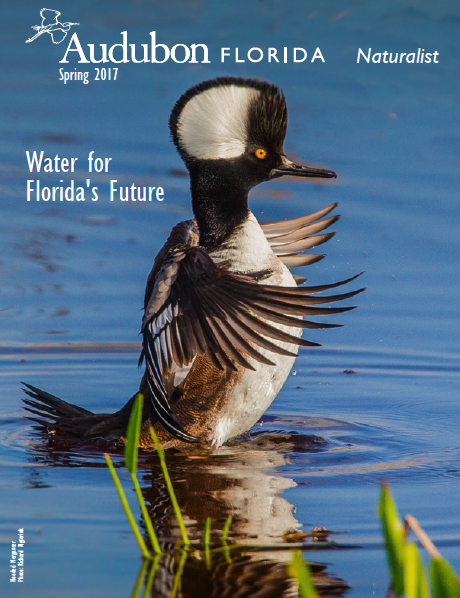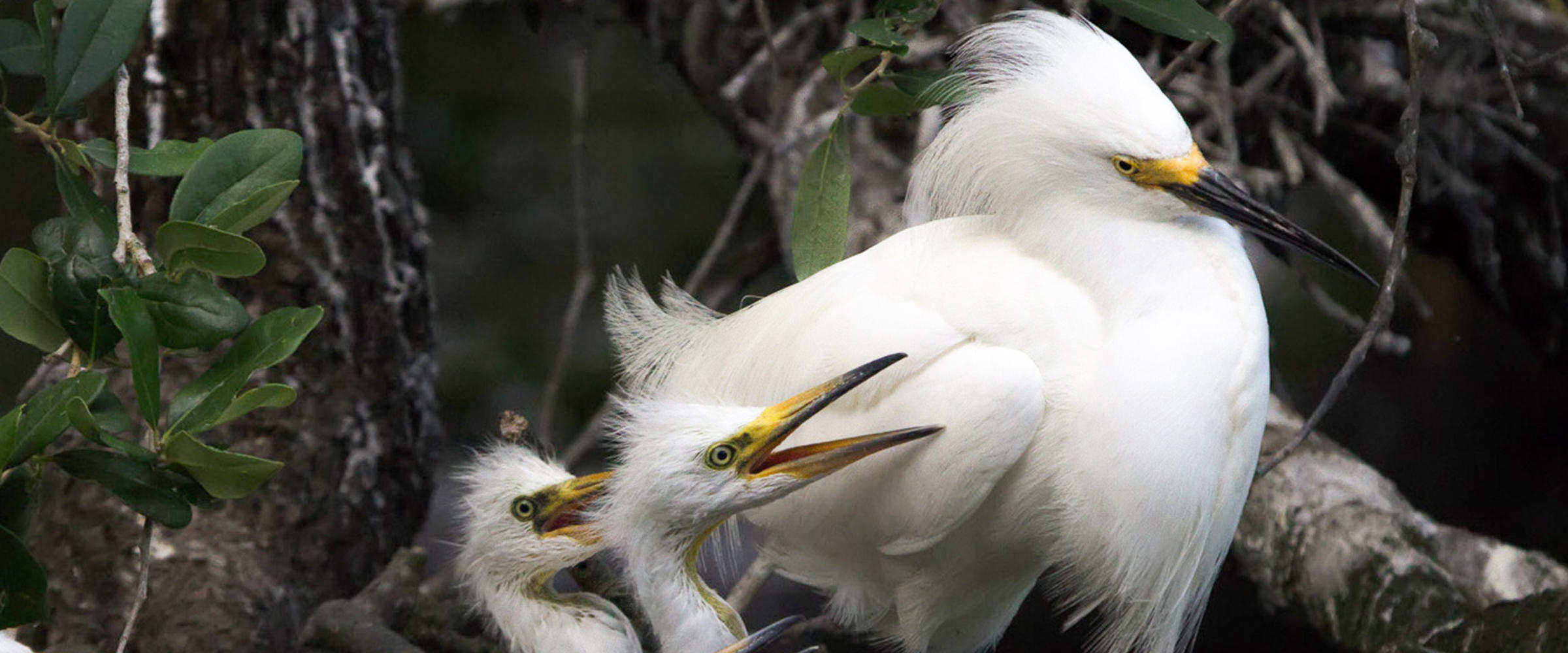By Lisa D. Mickey, a Florida Master Naturalist at the Marine Discovery Center and member of Halifax River Audubon
If you watch birds along Florida’s coasts, you may have seen them flying with fishing line trailing from their bodies or fishing hooks hanging from their bills. You may have also witnessed the heart-breaking sight of birds fatally entangled in tree branches.
Each year in early February, a team of naturalists from the Marine Discovery Center in New Smyrna Beach makes a visit to the two local bird rookery islands located on the Indian River Lagoon. To make the island safer for nesting birds, the team removes fishing line, equipment, and debris from the mangrove trees.
Throughout the year, the center’s naturalists regularly free birds entangled in fishing line or cut down those that could not escape death. These rescues happen around the island.
The February trip offers the chance to walk onto the islands for the only time all year. Long boat hooks, scissors, and knives are used to cut and pull down line before the birds arrive en masse to begin spring courtship and nesting.
It’s not a pleasant task to clean these islands of fishing line, but it’s a necessary one. Determined workers walk or crawl underneath the mangrove trees looking for fishing line, equipment and debris. Others patrol the perimeter of the islands, pulling down line from the outside of the trees.
These two islands host between 150-200 nests annually with Brown Pelicans, Great Egrets, Snowy Egrets, Cattle Egrets, Black-crowned Night-Herons, Tricolored Herons, and Double-crested Cormorants entering the world here. Many return each year.
Most fishing line is not biodegradable and can last up to 600 years. Because much of it is transparent and thin, birds and other wildlife often become entangled in line that has been improperly disposed in or around the water where these animals live and feed. A bird with yards of trailing fishing line is a danger not only to itself, but also to the rest of the birds in the colony.
Cleaning the rookery islands is an annual tradition that is both sad in what is evident, and uplifting, in what will come. It’s the thought of cacophonous squawking that signals spring each year – an event none of us would want to miss.
What Can You Do?
- Never leave fishing line unattended.
- Never enter an active colony to retrieve entangled wildlife. Instead, call the Florida Fish and Wildlife Conservation Commission at 1-888-404-FWCC (3922).
- Cast with care and avoid trees, utility lines, bridges, reefs, wildlife, and other anglers.
- If your line gets snagged or breaks, make every effort to safely retrieve it.
- Collect and properly discard line, debris, and other abandoned fishing gear.
- Do not feed wildlife, as it associates humans as a food source and tempts wildlife to approach fishing boats and anglers.
- Participate in fishing line recycling.
- Volunteer for fishing debris clean ups in the fall. Be sure to secure permission before entering an area for clean up.
- Report all entangled wildlife to the Florida Fish and Wildlife Conservation Commission (FWC) at 1-888-404-FWCC (3922).
Learn more at myfwc.com/unhook.
This article and more are featured in the Spring 2017 edition of Audubon Florida's Naturalist magazine. |
 |




